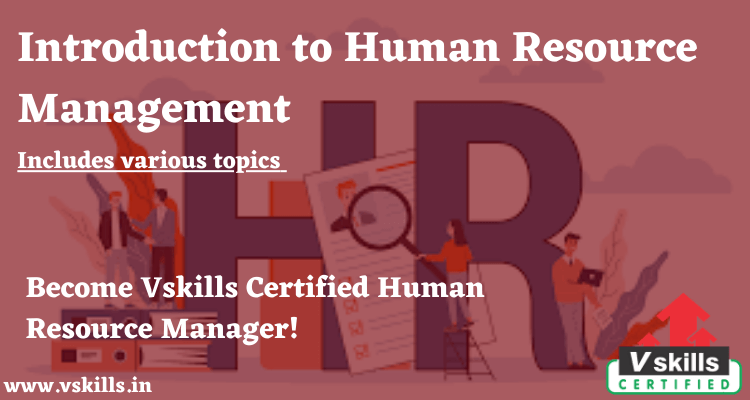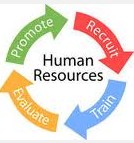Let us start with the Introduction to Human Resource Management.
What is Human Resource Management?
A human resource manager is responsible for managing the human resources of the organization by implementing policies, programs, and practices in the organization for a productive and motivated workforce. Human resource management also called HRM, or HR involves the management of an organization’s employees. Various functions that HRM oversees are
- Talent planning, acquisition and selection
- Employee training
- Employees wages and salaries management
- Employee performance assessment
- Providing benefits and incentives to employees
- Compliance with local employment and labor laws
- Dispute resolution with or amongst employees
- Acting as an communication channel between organization and employees
HRM acts as an interface between the company and it’s employees.
In an organization objectives are set in order to achieve predefined results by effectively utilizing the available pool of human resources. The basic objective of any organisation is to ensure that the employees work positively and efficiently direct their energies towards the realization of organisational objectives.
Some of the major objectives of HRM are as follows:
- Achieving organisational objectives by ensuring the availability of adequate number of employees
- Optimal utilization of available resources
- Establishing and maintaining sound organisational structure
- Maintenance of productive and self-respecting working relationship among all the employees of the organisation
- Enhancing productivity by identifying and satisfying employees needs through financial and non-financial motivators
- Maintaining high employee morale
- Proper training and development of employees on regular basis to match in the competitive business environment
- Efficient leadership, supervision and guidance to employees
- Favourable work condition and appropriate work environment for employees
- Hiring the right person for the right job depending on the job profile and work experience
This module covers the following:
- What is HRM
- Nature, scope, belief and objectives of Human Resource Management (HRM)
- Functions of Human Resource Management (HRM)
- Importance of Human Resource Management
- Organisational Behaviour
- Ethical Standards for HRM
Practice Questions
Q1. What is the primary role of HR in an organization?
a) Creating and implementing policies and procedures
b) Managing employee benefits and compensation
c) Recruiting and hiring employees
d) All of the above
Correct Answer: (d) All of the above
Q2. What is the process of attracting, selecting, and appointing candidates to a job called?
a) Employee engagement
b) Performance appraisal
c) Training and development
d) Recruitment
Correct Answer: d) Recruitment
Q3. What is the process of training and developing employees to improve their skills and knowledge called?
a) Performance management
b) Talent management
c) Learning and development
d) Succession planning
Correct Answer: c) Learning and development
Q4. What is the process of evaluating and providing feedback to employees on their job performance called?
a) Performance management
b) Talent management
c) Learning and development
d) Succession planning
Correct Answer: a) Performance management
Q5. Which of the following is not a benefit of employee engagement?
a) Increased productivity
b) Higher job satisfaction
c) Lower employee turnover
d) Higher absenteeism
Correct Answer: d) Higher absenteeism




